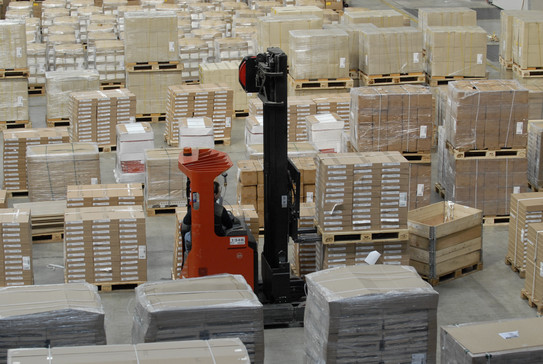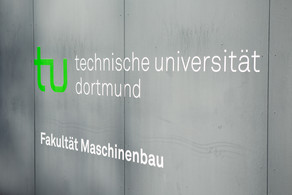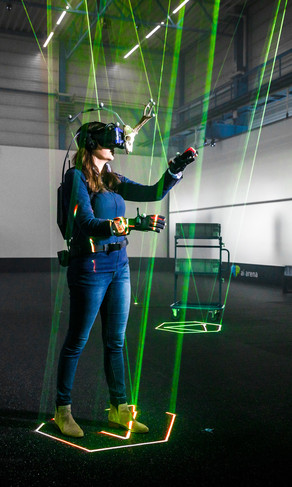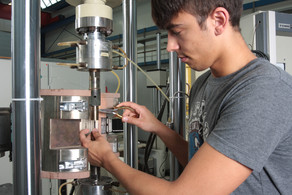B.Sc. Logistics
Logistics moves the things of this world. This includes the scientific study of planning, management and control of material, financial and information flows in value-added systems and networks. As a cross-sectional discipline, it combines technology, computer science and business administration through cross-departmental and cross-company systems thinking. Logistics activities are determined by cost and performance parameters. The task of logistics is to provide the right materials and information in the right quantity, at the right time, at the right place and in the right quality - at the lowest possible cost and impact on the environment.
In addition to the courses, students will gain valuable insights into operational processes and current work content in logistics through internships, excursions and case studies supported by industry partners. Thus, students will sharpen the competence profile already during the studies and receive an orientation for further career planning. As interface managers, logistics specialists should have strong communication skills. They lead interdisciplinary teams, prepare complex issues in line with requirements and communicate them in a way that is appropriate for the target group.

The bachelor's degree program in logistics at TU Dortmund University is a full-time program that comprises seven semesters, with the seventh semester being devoted to a practical phase and the completion of the bachelor's thesis. The study program is interdisciplinary and reflects the versatile job profile of the industry. This is made clear by the study focus on technology, business administration, IT competence and logistics. Within each of the aforementioned areas, basic knowledge is taught first. Logistics specialists fulfill a cross-sectional function in industry and act in a team-oriented manner in worldwide networks. The teaching of logistics learning content begins in the first semester and takes place in the context of current findings in engineering, economics and natural sciences. In the bachelor's program, all facets of logistical tasks are dealt with from the very beginning. This is done in particular in courses on transport, intra-, corporate and information logistics as well as on the fundamentals of supply chain management. In parallel, the curriculum includes basic knowledge of mechanical engineering, electrical engineering, computer science and economics.
In the higher semesters, there is the possibility of acquiring more in-depth knowledge in the areas of intralogistics, transportation and simulation (planning) within elective catalogs. In the same way, you can choose further business subjects individually and according to your needs. In addition to conveying a broad range of technical and methodological knowledge, the training also includes courses for the acquisition of social and application skills. Additional qualifications and industrial internships totaling 20 weeks further round out the specialized knowledge and facilitate its application in the professional environment.
Previous experience and internships
To review and supplement math skills, we recommend the Pre-Course in Mathematics. The 3-week course is offered every year in September.
A total of 20 weeks of industrial internship is required - consisting of an eight-week basic internship and a twelve-week specialized internship. We strongly recommend that you complete the basic internship before you begin your studies. This will provide you with basic knowledge in the manufacture of workpieces and the assembly of subassemblies and products, as well as familiarizing you with the variety of different manufacturing processes. Further information can be found on the pages of the Internship Office.
At a glance
Standard period of study Start of study
7 Semesters Wintersemester
Credits Language
210 ECTS German, partly English
Application Deadline Internship
July 15th 8 weeks basic internship +
12 weeks specialized internship
Click here to enroll







![[Translate to English:] [Translate to English:]](/storages/zentraler_bilderpool/_processed_/c/6/csm_Internationale_Studierende_aus_Ecuador_aae423f6a4.jpg)
![[Translate to English:] [Translate to English:]](/storages/zentraler_bilderpool/_processed_/f/5/csm_Audimax_Vorlesung-2_d01b012610.jpg)